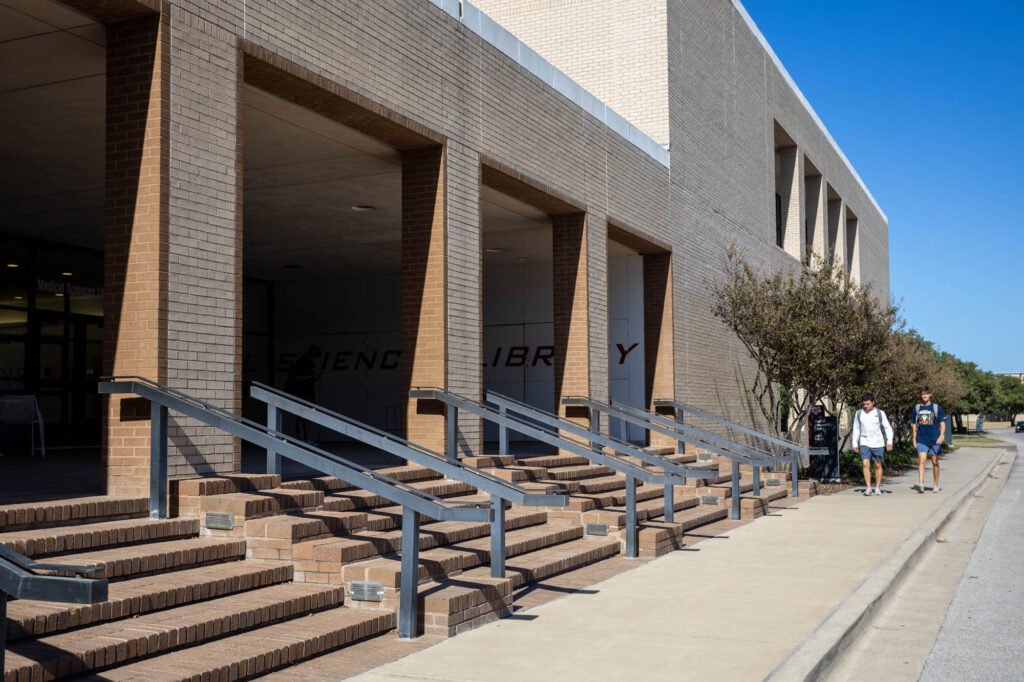As fall deepens, a wave of respiratory illness hits college campuses, filling classrooms with the sounds of coughing and sniffling. In response, Texas A&M University Health Services is ramping up awareness and vaccination efforts on and off campus.
“Every year around this time, we see an increase in respiratory illnesses such as colds and some types of influenza,” said Dr. Gail Ponder, chief of medical staff at AP Beutel Health Center. “The close contact that comes with dorm living, packed auditoriums, and shared spaces makes it easier for these viruses to spread quickly.”
With the annual flu season in full swing, university health officials are reporting an increase in students seeking treatment for persistent coughs, nasal congestion and fatigue. Although most cases remain mild, Ponder said symptoms can interfere with students trying to meet their academic responsibilities.
To combat the spread of respiratory illnesses, health centers are ramping up awareness campaigns and influenza vaccinations, the latter of which is an important preventive measure, Ponder said. “The flu shot is one of the best ways to protect yourself from serious illness, especially in community settings like universities, and we want to make sure cost is no longer a barrier. We provide that,” Ponder said.
The effort is centered at the AP Beutel Health Center, where students can schedule an appointment online or by phone. Although the CDC notes that the number of cases this season has been mostly minimal, there are still millions of cases reported across the United States, and the spike is most pronounced on campuses, the health department said. senior Sarah Ybarra said.
“You can hear people coughing in every class,” Ibarra said. “I know a lot of people who are sick right now. It’s hard to get everything done when you’re feeling exhausted.”
Information booths and posters around campus encourage students to wash their hands frequently, avoid sharing drinks and stay home if they are sick. But despite these efforts, Ponder acknowledged that it will be difficult to completely stop the spread of infection.
“In a social environment like this,” Ponder said. “It’s difficult to eliminate all risks, but even small steps help.”
Ybarra said students often have few options due to the contagious nature of the disease.
“Even if you’re doing everything right, it’s hard not to miss something when you’re in close contact with other people all the time,” Ybarra said. “You can’t avoid the shared atmosphere in the lecture hall.”
If you are infected, Ponder said taking time off, even if it means missing classes, is essential to help you recover quickly and prevent the spread of infection.
“We have worked with faculty to encourage flexibility for students who are unwell,” Professor Ponder said.
The university is asking professors to provide online resources and recordings of lectures to help students catch up if they miss class due to illness. This policy aims to balance academic progress with health and reduce pressure on students who need time off.
“I’m glad that professors are understanding, but it’s still hard not to worry about delays,” Ybarra said. “It helps to remind me that it’s okay to prioritize my health.”
As the season continues, health officials hope that increased awareness and preventive measures will reduce the impact of respiratory illnesses on campus life, and Ponder said he is cautiously optimistic. Ta.
“We may not be able to stop every disease, but together we can slow the spread and keep our campus as healthy as possible over the winter,” Ponder said.

